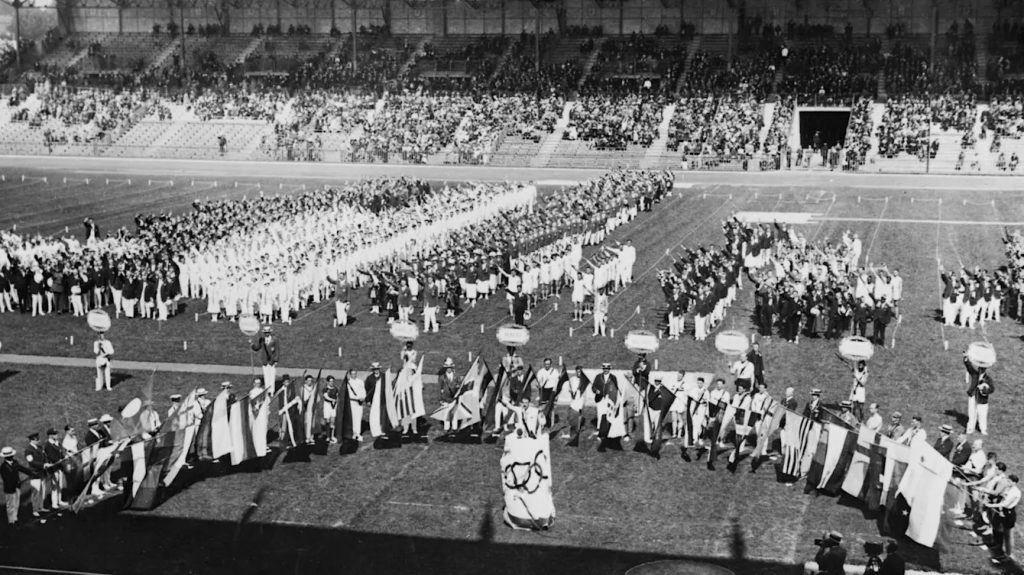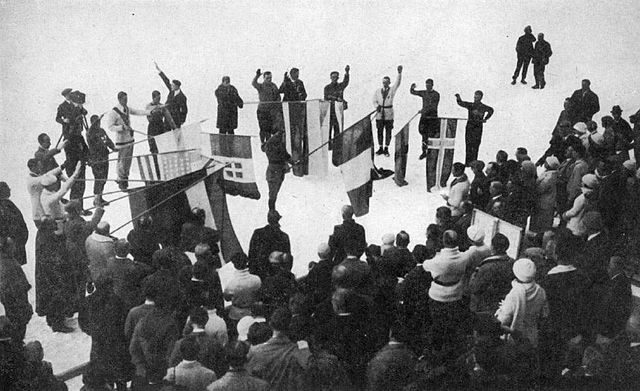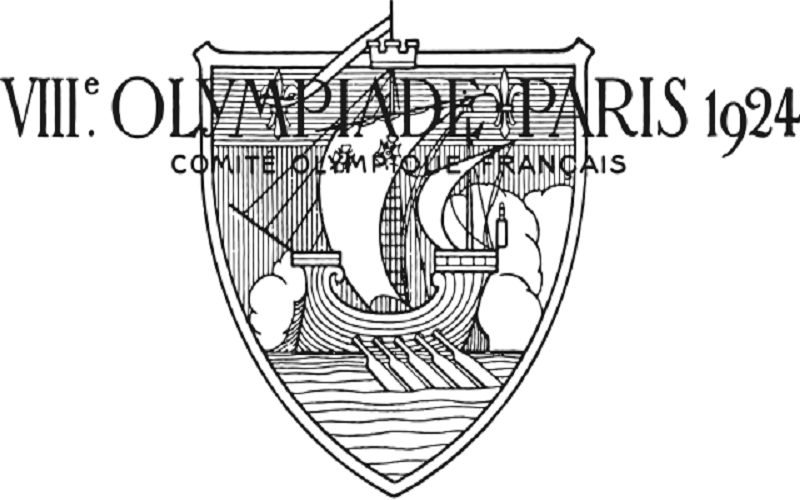This summer, Paris will host the 2024 Olympic Games for the third time in its history, as athletes from around the world gather in the French capital for the greatest sporting event on the planet.
Though the Games last visited Paris in 1924, many of the traditions found in the Olympics today derive directly from that year and continue to define the modern Olympic Games.
Exactly a century on, here’s South West Londoner‘s retrospective of the event, and the legacy it continues to leave.
When the Olympic Games arrived in Paris in the summer of 1924, the tradition was very much in its infancy.
Though the Olympic Games was held in Ancient Greece hundreds of years before, the modern incarnation of the event was only founded in 1896.
The brainchild of French historian Pierre de Coubertin, who would serve as the first president of the International Olympic Committee (IOC), the Olympic Games were intended to foster and strengthen international ties through friendly competition.
de Coubertin would vacate his post as IOC President in 1925, a year after the Olympics were held in his hometown.
Held from May 4 to July 27, the 1924 Summer Olympics were the eighth iteration of the modern Games, and would prove to be a watershed moment in the recognition of the modern Olympics as a major sporting event.
The number of participating nations increased that year from 29 to 44, with more than 3,000 athletes competing across 17 sports.
This necessitated the foundation of the Olympic Village for the first time, where these athletes would live and train with each other off the field.
Accordingly, these athletes were accompanied by more than 1,000 journalists, some of whom would cover these Games on the radio for the first time in the event’s history.
1924 also saw the introduction of the Olympic Motto, ‘Citius, Altius, Fortius’, (Swifter, Higher, Stronger), coined by de Coubertin and sworn by French track and field star Geo Andre at the beginning of the event.
In addition, the closing ceremony ritual of raising three flags: one each belonging to the IOC, the host nation (France) and the next host nation (the Netherlands), was also performed for the first time.

In the official report of the 1924 Olympics, the secretary general of the Organising Committee would later write: “Thirty years later, I am once again called here to enjoy the intense experience of the Games of the VIII Olympiad…
”Is this unanimity not, in fact, proof that the Olympic Games now play a prominent role in relations between nations?
“In bringing young people from every country together, they help foster this sense of cordiality that teaches men to become acquainted with each other better, first, and then to hold each other in higher esteem, a process that the Paris Games will have greatly aided thanks to the sheer number of people they attract.”
Indeed, the impact of these Games could not be understated, for they would also serve as the inspiration for the Winter Olympics following the success of that year’s ‘International Winter Sports Week’ in Chamonix, retroactively acknowledged as the inaugural Olympic Winter Games.

On the field, attendees were treated to displays of sporting excellence unlike any they had ever seen before.
In track and field, the ‘Flying Finns’ Paavo Nurmi and Ville Rutola would win five and four gold medals respectively, with Nurmi triumphing in the 5,000m only 55 minutes after emerging victorious at the 1,500m.
For Great Britain, Harold Abrahams and Eric Liddell would become champions of the 100m and 400m respectively, with their legend immortalised in the iconic 1981 film Chariots of Fire.
The USA would complete a double in winning the shot put and discus courtesy of Bud Houser, while swimmer and future Hollywood star Johnny Weismuller swam to victory in the 100m and 400m freestyle as well as the 4x200m freestyle relay.
Women’s fencing was also introduced in these Games with Dane Ellen Osiler winning gold after an undefeated run, while in the men’s, home favourite Roger Ducret won France five medals.
Uruguay would win gold in football following their 3-0 defeat of Switzerland in the final, and would replicate this feat four years later in Amsterdam before winning the first edition of the FIFA World Cup in 1930.
In tennis, American Vincent Richards won the men’s singles and doubles while attaining silver in the mixed doubles, while compatriot Helen Wills Moody achieved gold in the women’s singles and doubles.
Poignantly, fellow American Richard Norris Williams won the mixed doubles alongside Hazel Hotchkiss Wightman, his victory coming 16 years after surviving a brush with death on the ill-fated Titanic.
Meanwhile, in rugby, the USA achieved distinction as rugby’s only double Olympic champions, defeating France 17-3 in the final four years after first emerging triumphant in Antwerp.
The 1924 Summer Olympics had promised much both on and off the field, and it had surpassed all expectations.
A century later, and with only four months left until the Summer Olympics return to Paris, will 2024 follow suit?
Featured image in public domain





